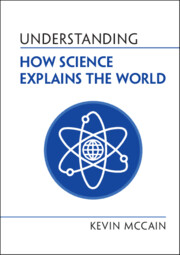Book contents
- Understanding How Science Explains the World
- Series page
- Understanding How Science Explains the World
- Copyright page
- Reviews
- Dedication
- Contents
- Foreword
- Preface
- Acknowledgments
- 1 Why Explanation Matters in Science
- 2 The General Nature of Explanation
- 3 Specific Kinds of Scientific Explanations
- 4 Explanation and Prediction
- 5 Evaluating Explanations
- 6 Explanatory Quality and Felt Understanding
- 7 False Theories, But Accurate Explanations?
- 8 From Explanation to Knowledge
- Concluding Remarks
- Summary of Common Misunderstandings
- References and Further Reading
- Figure Credits
- Index
- References
References and Further Reading
Published online by Cambridge University Press: 17 June 2022
- Understanding How Science Explains the World
- Series page
- Understanding How Science Explains the World
- Copyright page
- Reviews
- Dedication
- Contents
- Foreword
- Preface
- Acknowledgments
- 1 Why Explanation Matters in Science
- 2 The General Nature of Explanation
- 3 Specific Kinds of Scientific Explanations
- 4 Explanation and Prediction
- 5 Evaluating Explanations
- 6 Explanatory Quality and Felt Understanding
- 7 False Theories, But Accurate Explanations?
- 8 From Explanation to Knowledge
- Concluding Remarks
- Summary of Common Misunderstandings
- References and Further Reading
- Figure Credits
- Index
- References
- Type
- Chapter
- Information
- Understanding How Science Explains the World , pp. 107 - 114Publisher: Cambridge University PressPrint publication year: 2022



